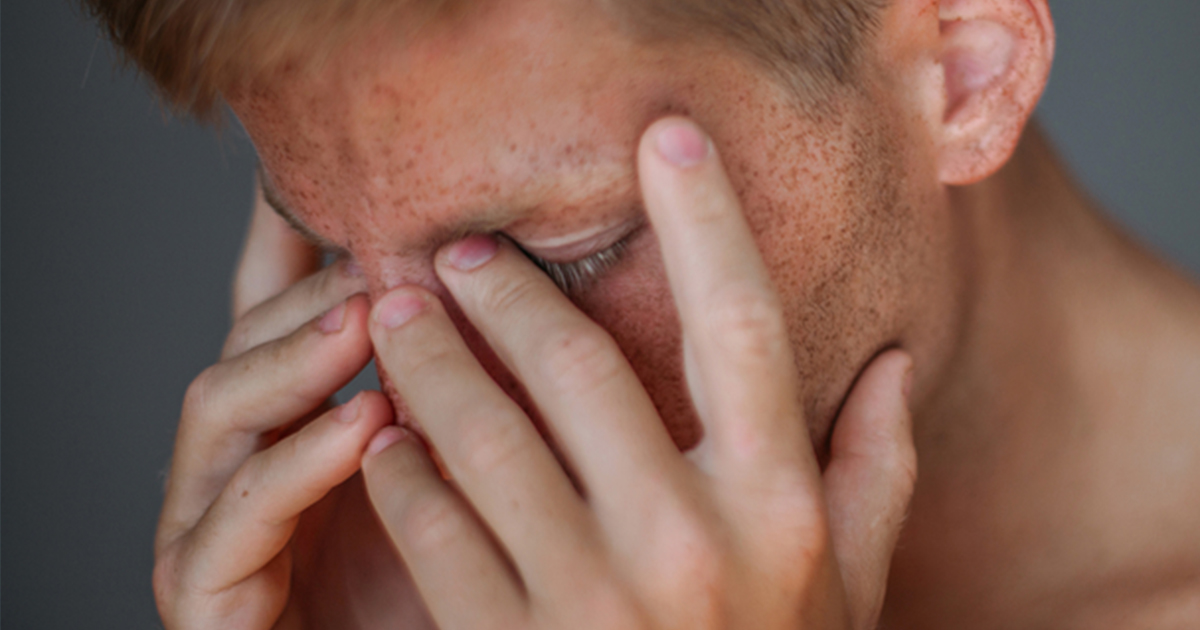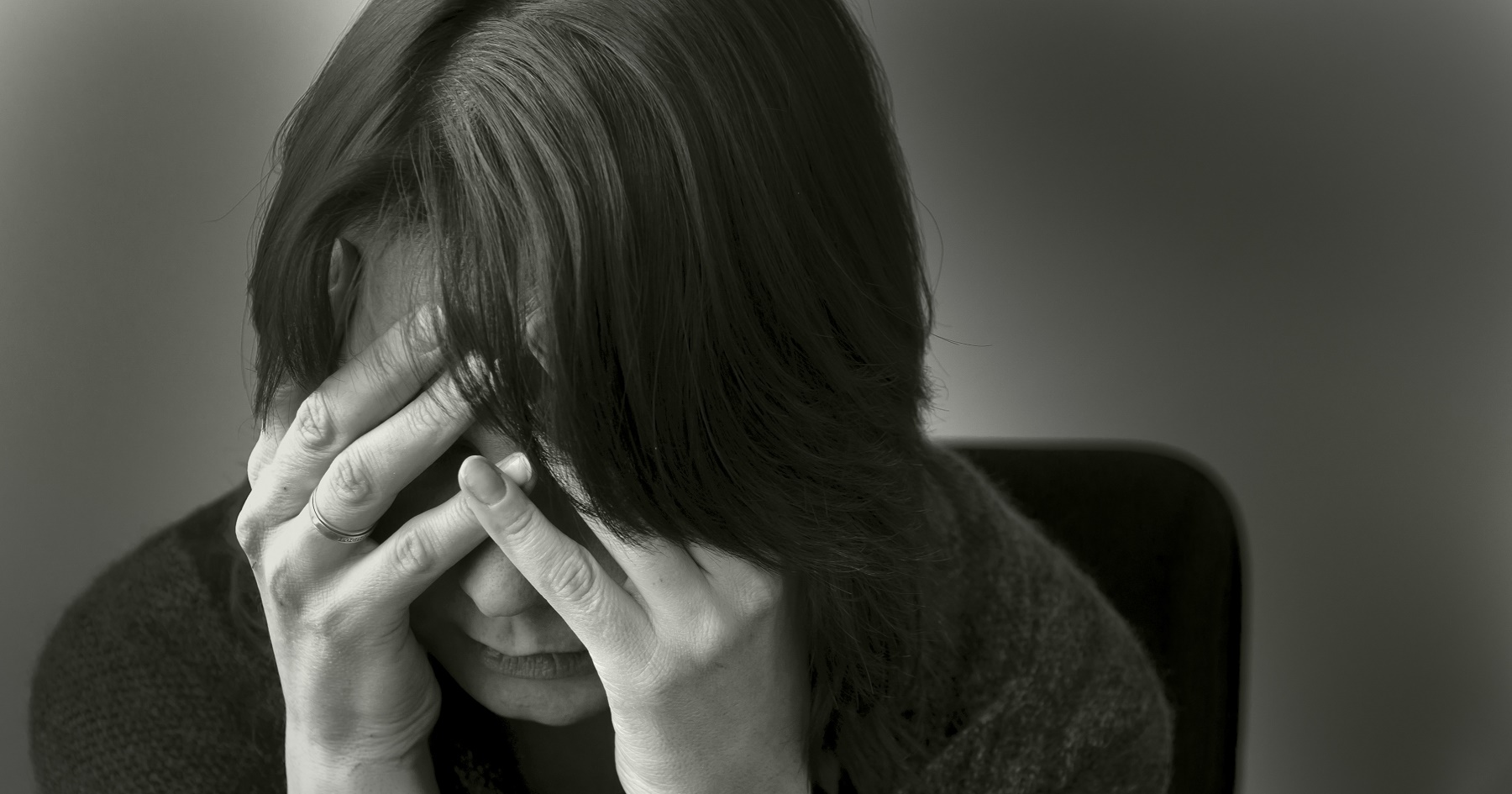How to Know If You Have High-Functioning or Low-Functioning Depression

By:
There has been a lot of social media conversation about high-functioning mental illnesses in recent months, particularly with regard to depression.
Amanda Leventhal, a woman who says she has high-functioning depression, wrote a viral first-person story about it for The Mighty in May and argued that people with high-functioning depression are easily overlooked simply because they appear to be fine on the surface:
"We don't see the student with the 4.0 GPA. We don't see the student who's active in choir and theater or a member of the National Honor Society. We don't see the student who takes on leadership roles in a religious youth group. No matter how many times we are reminded that mental illness doesn't discriminate, we revert back to a narrow idea of how it should manifest, and that is dangerous."
The ensuing discussion surrounding the topic raises a big question:
What is the difference between high-functioning depression and non-high-functioning depression?
 Stocksy/Studio Firma - stocksy.com
Stocksy/Studio Firma - stocksy.com
There is no formal diagnosis for high-functioning depression.
But the majority of people with depression fall into this category, Michael D. Yapko, a clinical psychologist and fellow of the American Psychological Association, told ATTN: in a phone interview.
"If you look at it from a clinical perspective, all depression exists on a continuum, ranging from mild to severe," Yapko told ATTN:. "And the majority of people who suffer depression are in the moderate to mild domain. So what you're calling high-functioning depression are the people for whom the depression is there.
"They're aware that they're not particularly happy in their lives, or they're not feeling particularly good about their lives, but they're functioning," Yapko added. "They still go to work and do their jobs. They still pick their kids up from soccer practice. They still do the things they're supposed to do. They just aren't very happy doing it.
"The fact that they're functioning is why people are calling it high-functioning. But the reality is that's the vast majority of people who suffer depression. It's a relatively small minority of people whose depression is so severe that it's crippling. It disables them from work or functioning. So high-functioning is actually more the norm than any kind of special consideration."
 Bigstock/Oleg Golovnev - bigstockphoto.com
Bigstock/Oleg Golovnev - bigstockphoto.com
How do you know if you have high-functioning depression?
Social isolation and sleep troubles may be signs of high-functioning depression, which Yapko prefers to call mild depression, he said.
Because sleep troubles can be caused by other factors — such as working later or spending too much time in front of a screen before bed — it can be hard to determine whether one's sleep issues are a symptom of depression or something else, Yapko added:
"They're not interested in connecting with other people. They're not returning calls. They're hassled by having to go anywhere and do anything beyond the things that they must do. They're not feeling good about themselves.
"The single most common symptom is sleep disturbance, and it's hard to know, given that most people these days are working harder, staying up later, and surfing the 'net more and doing all kinds of things that interrupt their sleep.
"Sleep disturbance is a very common sign. Fatigue is a very common sign. The two most common signs, in fact. The loss of humor. Things just aren't funny: They can't see the humor when they're watching movies or television shows. It all seems trivial to them, compared to the suffering that they're experiencing. They find themselves impatient with people, intolerant of people."
How do you know if you have severe depression?
People with high-functioning depression fulfill their responsibilities, despite being unhappy in the process, Yapko said.
People with low-functioning or severe depression, however, are unable to handle the tasks and duties expected of them, he added:
"Really severe depression is crippling. It's disabling. The person can't even get out of bed. They're not functioning. They're not doing what they're supposed to do. They're calling in sick to work. They're letting their kids go without meals and without baths, and they're not functioning. The smaller percentage will end up in the hospital, where they are removed from all of their usual responsibilities of daily life and connections of daily life, and that's at the most extreme."
Certain personality types, such as perfectionists, often suffer from high-functioning depression.
This is consistent with research that suggests perfectionists may be more vulnerable to depression, Yapko said:
"Perfectionism is a guaranteed pathway to feeling lousy; since you're never likely to be perfect, it means you're always going to be self-critical and self-condemning, and that doesn't help you move any.
"When people are skillful and high-functioning, they very often have goals that are really far reaching, even unrealistic goals. ... You set an unrealistic goal that you're not aware is unrealistic, [so when] you keep failing to reach it, you think it's a personal failure, instead of the fact that the goal itself was unrealistic from the start.
"High-functioning means that people are doing well. They're usually pretty smart, pretty successful people, and those are the kinds of traps that people fall into. They become victims of their own success. They think that if they try hard enough, they can do anything. And when they fail, they don't handle it well. Or when things take longer than they think they should, they don't handle it well."
People with high-functioning and low-functioning depression alike would benefit from getting help to deal the inevitable challenges of life, Yapko said.
"The people who consider themselves high-functioning, very often what's generating their depression isn't their circumstances, it's their reaction to the circumstances," he said. "Whether you're high-functioning or low-functioning, you need to develop the skills, the resources, to hand life on life's terms."
If you or someone you know is experiencing depression during the holidays, contact the National Alliance on Mental Illness helpline at 800-950-6264.
